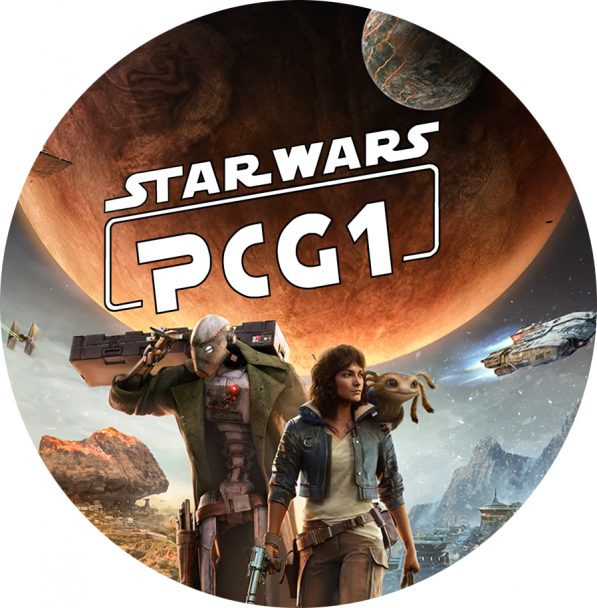Fallout 76 won’t be available via Steam. Fortnite, which is likely the biggest game in the world right now, has its own launcher. Call of Duty: Black Ops 4 will be exclusive to Battle.net. Electronic Arts not only has its own digital distribution service, but it’s moving toward a subscription model in general.
The biggest franchises from the biggest publishers in gaming are becoming less likely to release their games on Steam, where they give up a 30 percent cut of revenue to Valve.
So what does this mean for the future of Steam?
Steam is in an enviable situation
“Steam can definitely afford to lose some of the big games,” David Cole, the founder and CEO of DFC Intelligence, a research firm, told Polygon. “They are in a much stronger position than a retailer like GameStop when it comes to market share. It is somewhat unprecedented. Yes, a handful of games can get away with not being on Steam but, for most games, they lose the prime consumer distribution channel.”
Buying a game on Steam, for most players, is the path of least resistance. It’s an account they have already set up at a place that already houses most of their PC games. A developer or publisher is betting that their game is going to be worth the inconvenience of signing up for another service if they decide not to launch on Steam, and that’s assuming they’re confident enough to believe players will even know the game exists. Steam isn’t just where players go to buy games, it’s where many players go to shop for games.
And the number of big games launching away from Steam obscures the fact that they’re launching on services created by huge companies that have been around for years. Battle.net launched in 1996 and has roped in players through many games in many genres — which was the first title to get you to make an account? — and at this point, EA’s stab at a Steam competitor is already over seven years old. Epic Games already had a robust back end for selling games and content before Fortnite launched.
But even before this, outliers like Minecraft and League of Legends launched away from Steam. Those games had the two advantages of being released years ago, into a very different market, and also achieving large-scale success in a fairly rapid timeframe.
So when we talk about big name games avoiding Steam, we’re talking about them launching instead on other large, well-known and proven distribution services that are owned by big publishers. These games have something else in common.
“Companies avoiding Steam are mainly doing so for complex online games where they want more control over the users,” Cole pointed out. “EA Origin is one of the few direct competitors, but its success has been limited.”
The loss of a few bigger games won’t hurt Steam, because it’s due to a limited number of publishers relying on their own infrastructures to deal with customers directly. Even if other companies could do the same, they may not want to.
“On the whole, Steam is a pretty full-service platform,” Joan Blachere, communications manager of Motion Twin, the developer of Dead Cells, told Polygon. “Does it have drawbacks? Stacks of them. Could they do better? Sure. However, having worked with everyone in the business I can confidently say that Steam is the best, by a country mile.”
Steam is the worst platform (until you look at everything else)
Motion Twin has a list of things that Steam does well, but each of those things comes with a caveat. Could these things be done better? Sure, but no one is.
“In terms of features and support, Valve does a pretty good job of working with developers to build a store that brings good games to the top (at least in comparison to the console guys),” Blachere continued. “They have a review system that allows people to rate the game and leave feedback that we can then comment on (obviously, it’s not perfect). They have Early Access, which is really an amazing tool for developers to build their games, a community and even secure funding. They have a forum, god-awful as it may generally be, that people use to report bugs and request features.”
/cdn.vox-cdn.com/uploads/chorus_asset/file/11919033/dead_cells1.jpg)
/cdn.vox-cdn.com/uploads/chorus_asset/file/11919033/dead_cells1.jpg)
In other words, it’s good enough, especially when compared to doing all these things yourself.
“As for the backend, we’re actually an interesting case, because if you check out www.twinoid.com you’ll realize we’ve done that before,” Blachere said. “We created our own sort of mini-Steam for our F2P web games. We built it over years and had something like 35 million accounts created on the site. So, we know a little about dealing with community support, sales taxes around the world, and a billion payment providers. It’s not something we were wanting to rush back into doing.”
This isn’t to say that Steam is invincible, or that recent events haven’t stung it at least a little. And as Motion Twin pointed out, Steam’s weaknesses historically haven’t mattered because no one has offered anything better. Steam’s biggest threat may in fact be Discord, a service that has grown incredibly quickly due in part to offering a better chat system than Steam itself. And thanks to that truly impressive growth, it can now lay claim to having more daily average users than Steam. And Discord now sells games.
Valve would also do well to fear Amazon, a company that uses its size to bully its way into all sorts of industries. Making a bigger push to unseat Steam in direct digital sales, perhaps by offering developers a higher cut of revenue, could change things significantly. There’s also Twitch, which again grew by competing in an area of gaming in which Steam wasn’t dominant. Valve doesn’t need to watch its back or its direct competitors for a possible battle, it needs to pay attention to everything happening on its sides.
And, oh yeah, Amazon owns Twitch, and Amazon Prime already gives you Twitch Prime for “free,” along with an assortment of free games every month. With more than 100 million Prime subscribers, that’s a considerable competitive advantage.
Also, Steam has seen a noticeable usage dip in 2018.
The number of people playing games on Steam and even having Steam running keeps going down since January 2018.
The share of people playing is also decreasing – from 38% to 31%.
Why do you think it is? pic.twitter.com/7wUiVoEq6Q
— Steam Spy (@Steam_Spy) July 31, 2018
Ars Technica theorized that the combination of declining player numbers for PUBG and the rise of Fortnite has a lot to do with it, but noted these numbers might not mean anything in the long term.
Steam is in such a dominant position that it can lose a big chunk of players and still pull in massive amounts of revenue, and there’s yet to be any evidence of a significant, long-term exodus in players. In fact, so far the evidence points in the other direction.
“Year over year, the 14.8 million people opening Steam on an average July 2018 day is still up significantly from the 12.8 million people doing the same last July or the 8.8 million daily average from July 2015,” Kyle Orland reported. “Unless those year-over-year numbers start dipping precipitously, Valve’s industry-leading platform is still probably in pretty good shape.”

